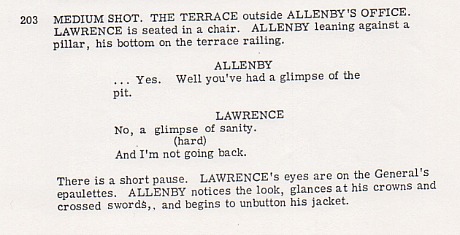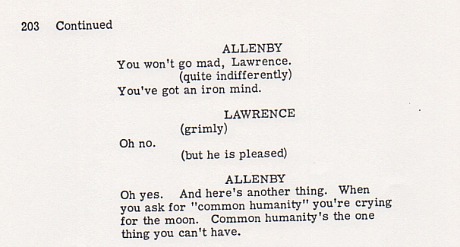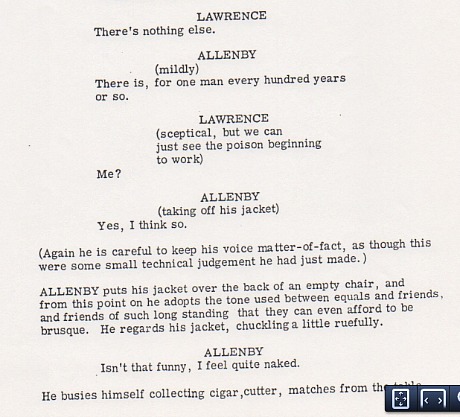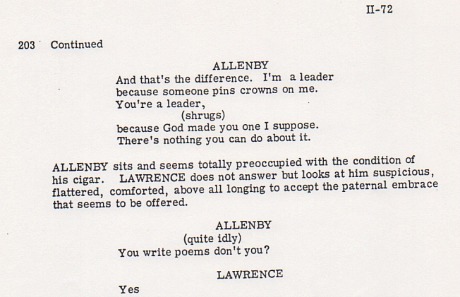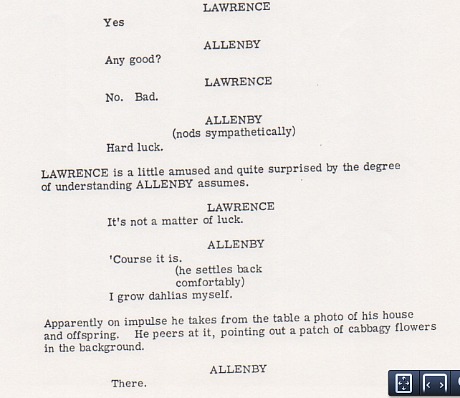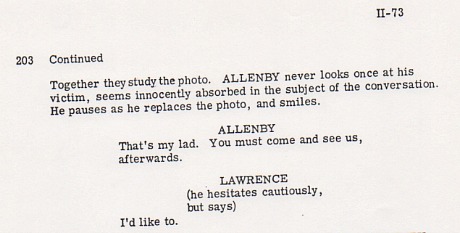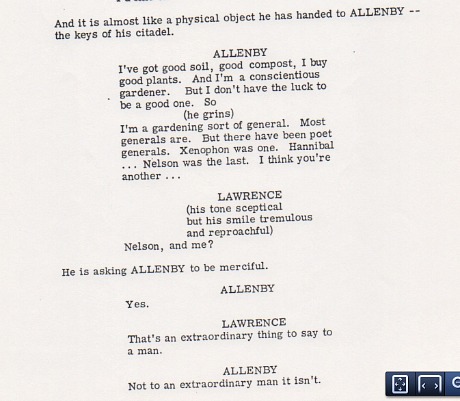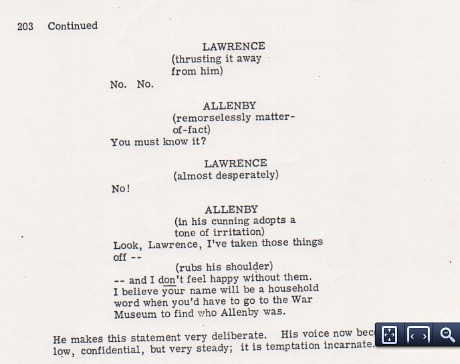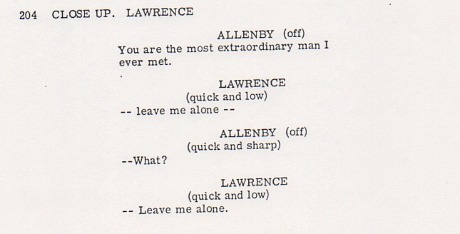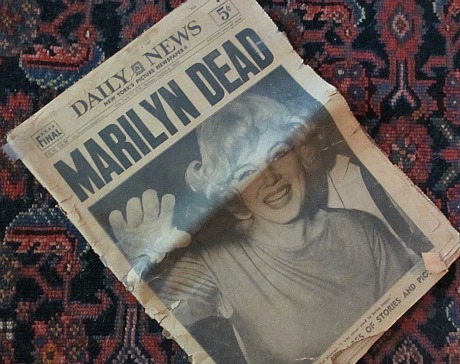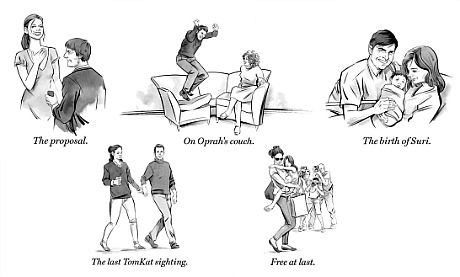Well, there goes my idea of an exclusive 2012 New York Film festival debut of Roger Michell‘s Hyde Park on Hudson (Focus, 12.7) because of the political-and-cultural FDR-NY connection…forget it. Because it was announced this morning that Hyde Park is debuting at the 2012 Toronto Film Festival. Will NYFF honcho Scott Foundas accept sloppy seconds?
I’m sitting here and sifting through the first batch of Toronto Film Festival selections as we speak. They were announced this morning at a Toronto press conference.
Where’s Paul Thomas Anderson‘s The Master? I don’t see any Master here. Does this indicate a Scott Foundas-engineered North American exclusivity coup of some kind?
Terrence Malick‘s unsold and possibly troubled To The Wonder, which has been imagined as a space-case Oklahoma love story occuring in the mind of a gifted but undisciplined wackadoodle director, will also turn up in Toronto following its Venice Film Festival premiere.
Joe Wright‘s Anna Karenina will pig out and go crazy with 2012 TIFF exposure.
David O. Russell‘s The Silver Linings Playbook will also play Toronto so there’s another debut that Foundas can’t have. If I were Scott I would get on the stick and land (a) Steven Spielberg‘s Lincoln as the NYFF’s closing-night attraction, (b) Robert Zemeckis‘s Flight and (c) Robert Lorenz and Clint Eastwood‘s Trouble With The Curve.
And Juan Antonio Bayona‘s much-awaited The Impossible will also play Toronto. Will this be the absolute first-anywhere debut, or will this Asian tsunami disaster drama peek out first in Telluride?
And don’t give me any of that “oh, wow!…oh, joy!…Looper in Toronto!” jazz. Rian Johnson‘s sci-fi crime actioner starring Joseph-Gordon Levitt and Bruce Willis is said to be pretty good but watch out for Johnson — the quietly oppressive Brick convinced me that he’ll be a problem for many, many years to come. Besides, Looper opens on 9.28, or two weeks before it plays Toronto…big deal.
Does anyone jump off a skyscraper in Looper? Isn’t it contractually assured that in every big-studio sci-fi, comic-book-based or futuristic actioner a significant character HAS TO JUMP OFF A BUILDING? That may be so but I’m telling you right now that any and all building-jumpings are hereby verboten, and any film that includes one henceforth will suffer the consequences.
Pablo Larrain‘s No, one of the surprise hits of the Cannes Film festival two months ago, will have its major North American exposure at Toronto.
The TIFF Galas and Special Presentations include Ben Affleck‘s Argo (a kind of double-header for Affleck when you add in the Malick), the mind-bending. German-financed, Wachowski/Tom Tykwer Cloud Atlas, Derek Cianfrance‘s The Place Beyond The Pines, Billy Bob Thornton‘s Jayne Mansfield’s Car (which played in Berlin), Robert Redford‘s The Company You Keep (a Lem Dobbs-written thriller about a former ’60s radical on the run after a journalist exposes his identity), Stephen Chobosky‘s The Perks Of Being A Wallflower (a Mr. Mudd production) and David Ayers‘ End of Watch.
Nicholas Winding Refn‘s Only God Forgives was teased in Cannes (I saw the footage at the Salles du Soixantieme) so where is it?
I don’t have Clue #1 about Noah Baumbach‘s Frances Ha…nothing. But it’ll be in Toronto.
There will also be Stuart Blumberg‘s Thanks For Sharing, Liz Garbus‘ Love, Marilyn (what?), Shola Lynch‘s Free Angela And All Political Prisoners, Deepa Mehta‘s Midnight Children, Mike Newell‘s Great Expectations (Dickens), Rubba Radda‘s Inescapable (sounds too much like The Impossible), Sergio Castellitto‘s Twice Born, Gauri Shinde‘s English Vinglish, Mira Nair‘s The Reluctant Fundamentalist (with Kate effing Hudson?…get outta here), Nikolai Arcel‘s A Royal Affair, Hur Jin-Ho‘s Dangerous Liaisons, Hideki Takeuchi‘s Thermae Romae (too obscure sounding, cross it off), it off), Stuart Blumberg‘s Thanks For Sharing, Robert Puccini and Shari Spring Berman‘s Imogene, Yaron Zilberman‘s A Late Quartet, Joss Whedon‘s Much Ado About Nothing (a growth movie that we’re all going to have to sit through), Nenad Cicin-Sain‘s The Time Being, and Josh Boone‘s Writers.
Other slush-pile contenders include Ramin Bahrani‘s At Any Price, Maiken Baird‘s Venus And Serena, Neil Jordan‘s Byzantium, Dustin Hoffman‘s Quartet, Sally Potter‘s Ginger And Rosa, Ben Timlett, Bill Jones and Jeff Simpson‘s A Liar’s Autobiography, Laurent Cantet‘s Foxfire, Francois Ozon‘s In The House (with Kristin Scott Thomas), Margarethe von Trotta‘s Hannah Arendt, Andrew Adamson‘s Mr. Pip, Costa-Gavras‘ Capital, Ziad Doueiri‘s The Attack, Eran Riklis‘ Zaytoun, Baltasar Kormakur‘s The Deep, Nishikawa Miwa‘s Dreams For Sale, Lu Chuan‘s The Last Supper, Chen Kaige‘s Caught In The Web, Marco Bellochhio‘s Dormant Beauty, Ana Piterbarg‘s Everybody Has A Plan, and Joachim Roenning and Espen Sandberg‘s Kon-Tiki.
Not to mention Matteo Garrone‘s Reality (seen and respected but also dismissed in Cannes). Stephane Brize‘s A Few Hours Of Spring, Thomas Vinterberg‘s The Hunt, Ariel Vromen‘s The Iceman, Cate Shortland‘s Lore, Takeshi Kitano‘s Outrage Beypmd and Jacques Audiard‘s excellent Rust And Bone.






